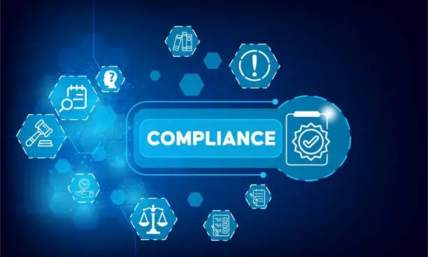Maryland New Pay Stub Requirements: What Employers Need To Know
From October 1, 2024, Maryland employers will be required to include new information on employees’ pay stubs.
Known as Senate Bill 38 and House Bill 385, the Maryland new pay stub requirements (SB0038/HB0385) increase pay transparency.
It also guarantees that employees get all the necessary information on their compensation.
This comprehensive guide answers questions that employers might have about these changes. So that when the law takes effect, you’re fully prepared and ready to go.
What Is Changing With the Maryland New Pay Stub Requirements (SB0038/HB0385)?
Here are the key changes:
-
Written notice at hiring
Previously, employers only had to let their new employees know about the pay rate, schedule of payment, and leave benefits. However, the notification did not have to be in writing. According to the new law, this notice has to be in writing at the time of hiring.
-
Expanded Pay Stub information
The most significant change is the longer list of information that needs to be on physical or online pay stubs for each pay period. Employers must now include the following:
-
The employer’s name, address, and phone number filed with the state
-
The date of payment and the beginning and end dates of the pay period.
-
Hours worked during the pay period (for non-exempt employees).
-
The pay rate(s).
-
Amount earned before deductions and amount earned after deductions during the pay period, or gross and net pay.
-
The amount of deductions, as well as their names
-
A list of other bases of pay, including bonuses, sales commissions, or other remunerations.
-
For piece-rate employees, the applicable piece rates and number of pieces completed at each rate
Why the Changes Matter
These new requirements are important for a number of reasons:
-
Transparency: With detailed information, the employees understand how their pay is calculated. They also have a clear picture of deductions and how and why certain deductions are made.
-
Record-keeping: More information provides a more comprehensive record of wages paid. This will help both employers and employees in case of disputes.
-
Compliance: It makes it easier for employers to demonstrate compliance with wage regulations.
-
Employee Education: It’s easier for employees to understand their total compensation package.
Key Considerations for Employers
October 1, 2024, the effective date of Maryland new pay stub requirements, is approaching. Before then, employers should consider the following:
Payroll System Updates
Most employers will need to engage their payroll providers or internal IT teams. They’ll need to modify and update systems to collect and display the newly required data. This may involve:
-
Modifying the fields in the database to hold more data points
-
Revision of the pay stub templates to accommodate all the necessary details
-
Upgrading online pay portals in order to display the expanded details
Data Collection and Verification
Employers must also make sure they collect and store relevant data for all the new required fields. This may involve:
-
Reviewing the previous records of employees to fill in any missing info or gaps.
-
Implementing processes for obtaining essential information from new hires.
-
Regularly verifying the accuracy of the information, especially for details like employer registration information.
Employee Communication
An important aspect is the communication of the changes to the employees, fully and clearly. Consider:
-
Informing employees in advance about receiving new and more detailed pay stubs
-
Guiding how to read and understand the expanded information
-
Implementing a procedure for employees to get clarifications or report discrepancies
Training for HR and Payroll Staff
Those responsible for payroll and answering employee questions will need training on the following:
-
The new requirements that have been introduced and where to find the information in your systems
-
How to explain to employees the changes made to pay stub details
-
Procedures for addressing any errors or omissions
Compliance Monitoring
Employers should have processes to audit pay stubs and make sure they’re compliant from time to time. This might include:
-
Random checks on the pay stubs for varying employee categories on a random basis
-
Including pay stub reviews in regular payroll audits
-
Designating staff responsible for staying updated on any future changes to requirements
Potential Challenges and How To Address Them
Employers may face some challenges in implementing the Maryland new pay stub requirements:
-
Legacy System Limitations
Depending on the company, the new changes may prove to be problematic to some forms of older payroll systems. If your current system can't be easily updated, you may need to:
-
Plan to use add-on modules or any third-party tool which is compatible with your system
-
Switch to a more modern, flexible payroll platform
-
Come up with temporary manual workarounds while seeking a permanent solution
-
Data Privacy Concerns
Some employees may feel concerned about their privacy, especially with online stubs. To address this:
-
Make sure you have implemented best practices in securing the online pay portal
-
Clearly communicate to employees about the security of their pay information
-
Think about allowing employees to get paper statements if they are uncomfortable with online access
-
Increased Administrative Burden
The expanded requirements may probably be a little tedious for the payroll and HR departments. To manage this:
-
Search for ways to automate the process of data collection and also pay stub generation to some extent
-
Think about staffing or redistributing workloads to accommodate the new tasks
-
Invest in training to ensure staff can handle the new requirements efficiently
$500 Penalty for Non-Compliance
The law authorizes the Commissioner of Labor and Industry to impose penalties on employers who do not follow the regulation. Specifically, civil penalties may include fines of up to $500 per employee who does not receive a compliant pay stub.
The law does not state how often such fines may be imposed. However, the potential for large fines means that timely compliance is important.
What About Remote Workers or Employees Who Split Time Between States?
For employees who work partially in Maryland:
-
The terms of the law apply if some part of the work is done in the state
-
Employers should be careful and provide compliant pay stubs
For fully remote workers based in Maryland:
-
The law applies the same way, even if the employer is based somewhere else.
Conclusion
The Maryland new pay stub requirements (SB0038/HB0385) represent a shift for employers in the state. Compliance may take some work and cost. However, a more transparent system will be in the best interest of the employer as well as the employee. By providing more detailed information, employers can build trust with their workforce. This can potentially prevent conflict or misunderstandings about pay.
As October 1, 2024 approaches, employers should familiarize themselves with the new regulations. They should also integrate the changes into the company’s systems, policies, and procedures. It’s also important to provide their employees with the necessary information. With proper preparation, the transition to more comprehensive pay stubs can be smooth and seamless.
Adjusting to new payroll regulations can be challenging, but you don't have to do it alone. At ThePayStubs, we help businesses of all sizes stay compliant with ever-changing pay stub requirements. Our user-friendly paystub generator can be updated to reflect new requirements. This ensures your pay stubs meet the latest standards. Our tools are designed to save you time and reduce stress. Let us handle the details so you can focus on running your business.















